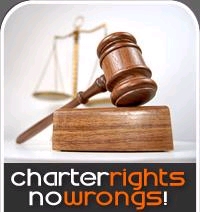
The Victorian Parliament is conducting a review of exemptions to Victoria’s Equal Opportunity law. This rises out of the introduction of the Victorian Human Rights and Responsibilities Charter in 2006.
The State Government is reviewing the exceptions and exemptions of its equal opportunity legislation so that it is in line with the Victorian Charter of Human Rights and Responsibilities, which has been operating for more than 18 months under the Equal Opportunity Act.
In June, a landmark study undertaken by the Australian National University found job applicants with foreign sounding names faced greater hurdles in the job market than those with Anglo names (the exception was Italians applying for jobs in Melbourne). Employees could be penalised for giving preference to long-term Australian citizens over new-arrivals. Rather than “racism” it could be that foreigners may have less English skills, overseas experience and qualifications, and cultural differences?
At present, a church or independent school can make exceptions based on a person's religious beliefs, sexuality or marital circumstances. Catholic Church wants their right to exercise discrimination of this kind to continue, the church equating any change to the law as a "threat to religious freedoms".
Many churches, religious leaders, parents and private schools vowing to defend discrimination based on faith.
Under the 53 exceptions and exemptions to the Equal Opportunity Act, a religious organisation can insist on staff sharing its belief. The parliamentary committee's options paper floats a controversial change that would make it more difficult for religious groups and schools to discriminate against people for "non-core" or “internal” roles — those not directly relating to worship or the teaching of faith, such as pastors and religious education teachers. But religious groups are fiercely rejecting the idea of core and non-core roles – all have a part in the ethos and practices! Churches and Christian organisations should have the right to employ people who support their ethos, ideals and give preference to people who live lifestyles in accordance their spiritual beliefs and practices. The weakness of the bill lies in the tension between the general rule and the exception: "justifiable discrimination".
The Australian Christian Lobby began a campaign against the review with a website called Make a Stand
ACL is opposed to a bill/charter of rights because it transfers law-making powers from democratically elected parliament to an unaccountable judiciary. Parliament is a forum for debating alternative perspectives. It is representative and democratic, whereas Courts are a much more limited forum.
A charter of rights means judges can declare laws ‘incompatible’ with their own interpretation of human rights. The vagueness of bills or charters of rights give judges open-ended interpretive scope to determine what particular rights entail and when they should be restricted.
In the UK and parts of the USA the Catholic Church has moved out of adoption services altogether because submitting to equal opportunity regulations for adoption, including the requirement to adopt out of same-sex couples, would have violated their conscience.
Australia's most prominent public figure opposed to a bill of rights is former NSW Labor premier, Bob Carr, but he is now drawing strong support from many quarters. If Attorney-General Robert McClelland is allowed to proceed, Kevin Rudd will find himself engulfed in a culture war over power, rights and values, with unusual dividing lines.
Human rights can conflict with each other. The right to privacy can impinge upon the right of a community to live in safety. Equal opportunity rights in employment can conflict with the need of a faith community and others to employ a people who share beliefs and a common culture.
How does one balance the right to life with the right to self-defence? How does one balance the right to avoid detention without conviction with the view of every Australian government that, on rare occasions, detention without conviction is essential for public security?
It is time to ask what this means for society if extra rights are invested in the causes surrounding feminism, asylum seekers, gays, national security suspects, law breakers and secularism, whilst long standing rights and services of groups such as Christians are withdrawn or overridden.
Our Brumby government, with support from the Greens, will make Christian institutions just another minority faith group along with Muslims, Buddhists, Hindus and thus create a more secular society. This is a push to further multiculturalism - a denial of our Christian cultural origins! This is an audacious push to quash religious freedom in Victoria.
The Age editorial
Make A Stand - ACL petition
 I am contemplating starting a sect called 'Free Love' in which all bearded men must walk around naked, where not to do so is considered blasphemous.
I am contemplating starting a sect called 'Free Love' in which all bearded men must walk around naked, where not to do so is considered blasphemous.
Recent comments